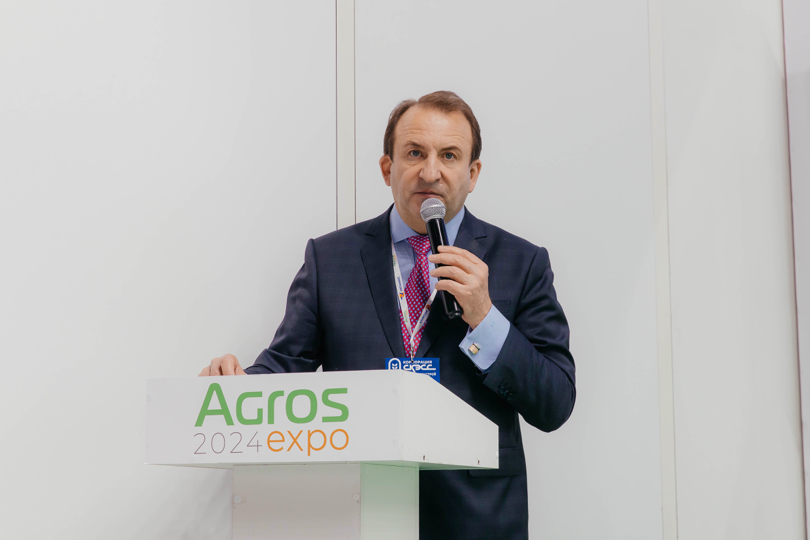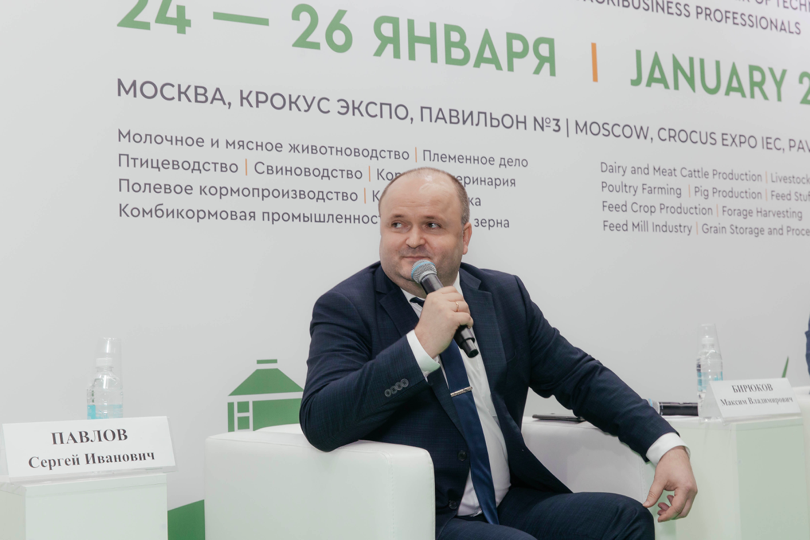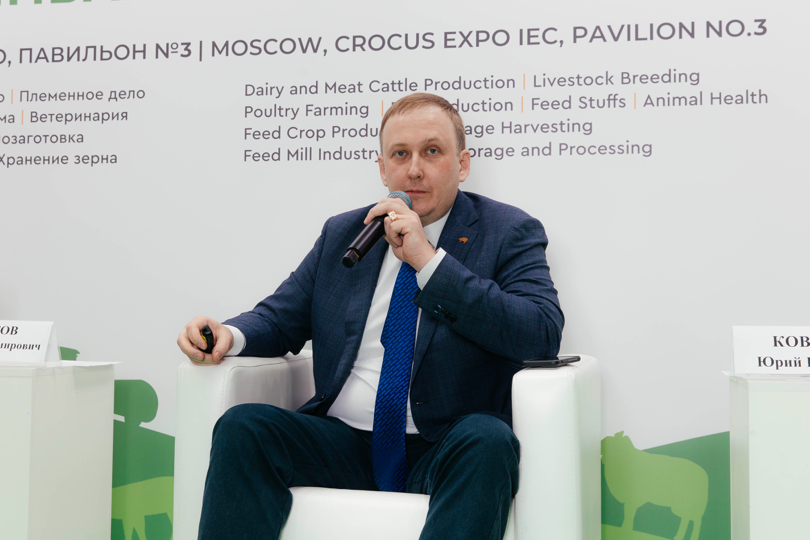Experts discuss prospects for industrial pig breeding in the age of global change

VIC Group, together with MEGAMIX Group and the National Union of Pig Breeders, held an international conference “Industrial pig breeding in the age of global change”. It was organised as part of the AGROS 2024 EXPO business programme, the main discussion topics including challenges, points of support and practical solutions.
Yuri Kovalev, General Director of the National Union of Pig Breeders, presented analytical data on the pig breeding market, reviewing the 2023 results and 2024 forecasts. He said pork consumption and production in the agricultural sector had gone up 6.5% last year, reaching 340,000 tonnes live weight. Exports also showed positive dynamics, with more than 277,000 tonnes of pork products delivered. “This is approximately 5% of our total production. It is very helpful in relieving the domestic market of additional volumes of products due to production growth”, Kovalev commented. The main consumers of Russian pork are CIS (40%) and Asian and South-East Asian countries (Vietnam, Hong Kong) (also 40%). The expert also noted the record consumption growth driven by three factors:
- income growth primarily due to support for low-income population groups;
- accumulative food segmentation, with pork prices remaining the most stable for more than eight years;
- levelling of pork and poultry prices: in 2023, pork became cheaper for the first time ever.
Kovalev expects the pork market in 2024 to remain at the 2023 level, with production growth at 6–7% (300,000–500,000 tonnes live weight) and consumer demand staying at the same level. The main new factor this year could be China opening up to Russian pork: at the end of 2023, China lifted a 15-year import restriction that had been imposed owing to the spread of ASF. There are plans to supply 20,000–30,000 tonnes of products in 2024. If things go well, Russia will be able to increase exports to 500,000 tonnes, making it into the top 5 global exporters.

Sergey Pavlov, Director of the Pig Breeding Promotion Division, VIC Group, spoke about key trends in the development of industrial pig breeding. He outlined the industry’s main goals: to make biosecurity measures more effective, reduce the cost of pork, enter export markets and implement an antibacterial strategy. The latter trend is receiving special attention because of the ongoing problem of antibiotic resistance, which increases production costs and reduces its efficiency. According to Pavlov, the situation will be improved by development of:
- management and technologies – compliance with sanitary and hygiene rules, keeping and feeding regulations, technological manipulations, and training employees;
- laboratory diagnostics – detection and typing of pathogens, assessment of prevalence in the herd, preparation of antibiograms;
- rational therapy - objective choice of medicines, rotation schemes, use of alternative methods.

Maxim Biryukov, leading veterinary support specialist, MEGAMIX Group, focused on effective pig breeding strategies in the context of modern realities. He said that, if we compare the traditional desire to minimise the cost of finished goods as much as possible versus investing in improving business productivity, even in the short term, the second path is more advantageous. Yet, this requires a competent integrated approach: not all currently known solutions and technologies are suitable for every manufacturer. “Investments are the future. By planning ahead and setting ambitious goals, you develop. It is necessary to invest in production now in order to get guaranteed super profits later”, Biryukov believes. Pig enterprise efficiency can be improved by developing genetic potential and working hard to ensure herd safety. According to the expert, there is no “magic bullet” guaranteeing an ideal result but there are effective tools, such as efficient management, laboratory diagnostics, biosafety, and introduction of innovative technologies.
The conference was also attended by experts from other key areas, including Hygiena representative Alexander Brekhovskikh, who spoke about modern safety control methods in production; Nikita Kulikov, General Representative of SSPA Group in Russia, who gave a detailed overview of the latest opportunities for using phytopreparations in pig breeding; Roman Strelnikov, leading technologist-consultant of the Pig Breeding Division, VIC Group, presented eco-solutions for complying with the requirements on handling of animal by-products; and Eric Pan from China outlined the prospects for developing the global acid market.
